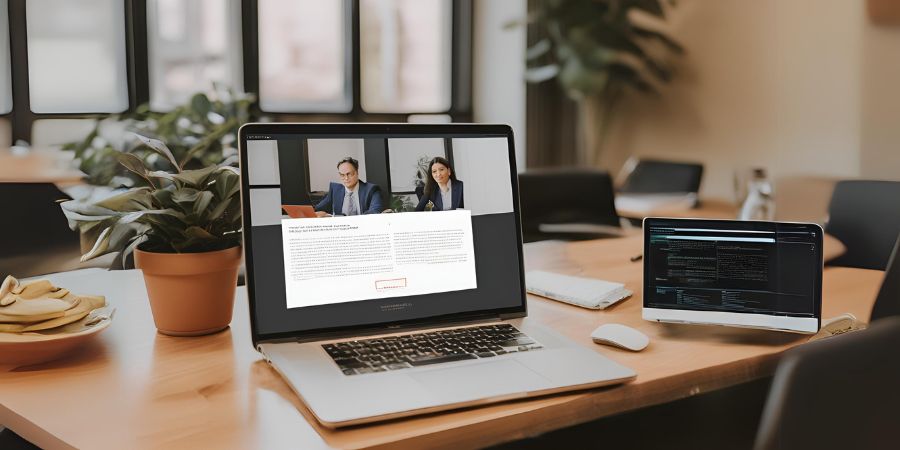In today’s fast-paced digital landscape, Software as a Service (SaaS) has become a cornerstone of modern business operations. For SaaS companies, navigating the legal terrain can be complex and challenging. This is where a specialized SaaS law firm steps in, providing crucial legal support tailored to the unique needs of SaaS businesses.
Understanding SaaS and Its Legal Implications
What is SaaS?
Software as a Service (SaaS) is a software distribution model in which applications are hosted by a service provider and made available to customers over the internet. This model offers numerous benefits, including lower upfront costs, scalability, and ease of access. However, it also introduces a range of legal considerations that must be meticulously managed.
Key Legal Areas for SaaS Companies
SaaS companies face a distinct set of legal challenges. These include data privacy and security, intellectual property rights, regulatory compliance, contract law, and liability issues. Each of these areas requires specialized knowledge and a strategic approach to mitigate risks and ensure smooth operations.
The Role of a SaaS Law Firm
Expertise in SaaS-Specific Legal Matters
A SaaS law firm is equipped with the expertise to handle the unique legal needs of SaaS companies. These firms understand the intricacies of the SaaS business model and the legal environment in which these businesses operate. Their expertise covers a wide array of legal issues that are critical for SaaS companies to address.
Data Privacy and Security
Data privacy and security are paramount concerns for SaaS companies. With the increasing prevalence of data breaches and stringent data protection regulations like GDPR and CCPA, ensuring compliance is essential. SaaS law firms help companies develop robust data privacy policies, navigate regulatory requirements, and implement best practices to protect user data.
Intellectual Property Protection
Protecting intellectual property (IP) is crucial for SaaS companies, whose business models often rely heavily on proprietary software and technologies. SaaS law firms assist in securing patents, trademarks, and copyrights, and they offer strategies to defend against IP infringement. They also provide guidance on licensing agreements and IP management.
Regulatory Compliance
The regulatory landscape for SaaS companies is constantly evolving. Compliance with industry-specific regulations and international laws can be complex. SaaS law firms stay abreast of these changes and ensure their clients remain compliant with all relevant regulations, reducing the risk of legal penalties and operational disruptions.
Contract Law and Negotiations
Contracts are the backbone of SaaS operations. Whether it’s customer agreements, vendor contracts, or partnership deals, having clear and enforceable contracts is vital. A SaaS law firm drafts, reviews, and negotiates contracts to protect the company’s interests, minimize liabilities, and foster positive business relationships.
Common Services Offered by SaaS Law Firms
Drafting and Reviewing SaaS Agreements
A primary service offered by SaaS law firms is the drafting and reviewing of SaaS agreements. These include terms of service, end-user license agreements (EULAs), service level agreements (SLAs), and privacy policies. These documents must be precise, comprehensive, and tailored to the specific needs of the SaaS company and its customers.
Handling Dispute Resolution
Despite the best efforts to mitigate risks, disputes can arise. SaaS law firms provide dispute resolution services, including mediation, arbitration, and litigation support. Their goal is to resolve conflicts efficiently and favorably, minimizing disruption to the business.
Compliance and Risk Management
SaaS companies operate in a highly regulated environment. Compliance with data protection laws, consumer protection regulations, and industry standards is non-negotiable. SaaS law firms conduct compliance audits, provide training, and develop risk management strategies to ensure ongoing compliance and reduce potential legal liabilities.
Choosing the Right SaaS Law Firm
Key Considerations
Selecting the right SaaS law firm is a critical decision that can significantly impact a company’s legal health. Here are some key considerations:
Industry Experience
Look for a law firm with a proven track record in the SaaS industry. Experience in dealing with SaaS-specific issues will ensure that the firm understands the nuances of your business and can provide relevant legal advice.
Comprehensive Services
A good SaaS law firm should offer a wide range of services, from contract negotiation to IP protection and compliance management. This ensures that all your legal needs are met under one roof, providing consistency and efficiency.
Client Testimonials and References
Client testimonials and references provide insights into the law firm’s reputation and effectiveness. Positive feedback from other SaaS companies can indicate a firm’s capability to deliver results.
Building a Long-Term Relationship
A successful partnership with a SaaS law firm is built on trust and collaboration. Choose a firm that prioritizes understanding your business goals and offers proactive legal support. Regular communication and ongoing legal reviews will help adapt to new challenges and opportunities as your business grows.
The Future of Legal Support for SaaS Companies
Adapting to Technological Advances
As technology continues to evolve, so too will the legal challenges faced by SaaS companies. Issues related to artificial intelligence, blockchain, and other emerging technologies will require specialized legal expertise. SaaS law firms must stay at the forefront of these developments to provide relevant and timely advice.
Enhancing Cybersecurity Measures
With the rise in cyber threats, the focus on cybersecurity will intensify. SaaS law firms will play a crucial role in helping companies enhance their cybersecurity measures, develop incident response plans, and navigate the legal implications of cyber incidents.
Global Expansion and Regulatory Challenges
As SaaS companies expand globally, they will encounter diverse regulatory environments. SaaS law firms will need to offer expertise in international laws and regulations, helping companies navigate the complexities of global operations.
Conclusion
In the dynamic and rapidly evolving world of SaaS, having a specialized SaaS law firm is invaluable. These firms provide essential legal support tailored to the unique needs of SaaS businesses, from data privacy and IP protection to regulatory compliance and contract law. By partnering with a SaaS law firm, companies can navigate legal complexities with confidence, ensuring their continued growth and success in the digital age.

